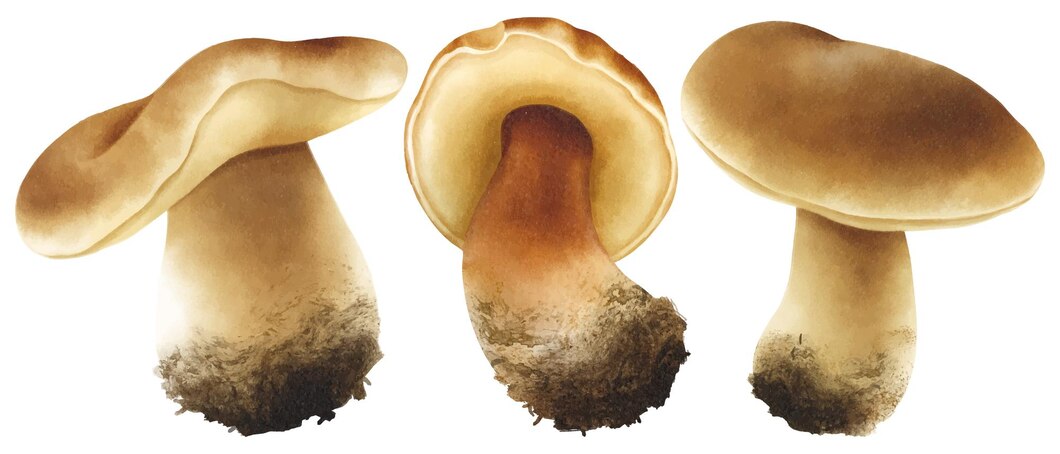Mushrooms, those versatile fungi, have long been celebrated for their unique taste and potential health benefits. As culinary enthusiasts experiment with various cooking methods, a common question arises: Does cooking impact the nutritional value of mushrooms? In this comprehensive exploration, we delve into the science behind cooked mushrooms and unravel whether the magic of their health benefits remains intact when exposed to heat.
The Raw Nutritional Foundation
1. Mushroom Nutrient Overview:
- Rich in Nutrients: Mushrooms are a nutritional powerhouse, containing essential nutrients like vitamins (B, C, D), minerals (selenium, potassium), and antioxidants.
2. Nutrient Retention in Raw Mushrooms:
- Vitamin Stability: Raw mushrooms retain their vitamin content, especially vitamin C, which can be sensitive to heat. This makes them an excellent source of immune-boosting nutrients.
3. The Role of Ergosterol:
- Vitamin D Potential: Raw mushrooms contain ergosterol, a precursor to vitamin D. Exposure to sunlight prompts the conversion of ergosterol to vitamin D, offering a natural source of this vital nutrient.
Cooking and Its Impact on Mushroom Nutrition
1. Heat and Vitamin C:
- Vitamin C Susceptibility: Cooking mushrooms can lead to a slight reduction in vitamin C content due to its sensitivity to heat. However, the overall impact is minimal, and mushrooms remain a good source of this antioxidant.
2. Unlocking Nutrient Bioavailability:
- Enhanced Nutrient Absorption: Cooking mushrooms can break down cell walls, making nutrients more bioavailable. This enhanced absorption contributes to the body’s ability to utilize the available vitamins and minerals.
3. Influence on Antioxidants:
- Antioxidant Release: While some antioxidants may be heat-sensitive, cooking mushrooms can release others, potentially enhancing the overall antioxidant content. This is particularly notable in certain mushroom varieties.
Varieties Matter: Cooking and Mushroom Types
1. Shiitake Mushrooms:
- Enhanced Lentinan: Cooking shiitake mushrooms activates lentinan, a polysaccharide with immune-boosting properties. Heat transforms lentinan into a more bioavailable form, potentially magnifying its health benefits.
2. White Button Mushrooms:
- Retaining Nutrient Value: White button mushrooms maintain their nutritional value even when cooked. Their versatility makes them a go-to choice for various culinary applications.
3. Morel Mushrooms:
- Nutrient-Rich Cooking: Morel mushrooms, when cooked, offer a concentrated dose of nutrients. Their unique flavor intensifies, and the cooking process enhances their nutritional density.
Culinary Tips for Maximizing Mushroom Nutrition
1. Gentle Cooking Methods:
- Sautéing and Grilling: Opt for gentle cooking methods like sautéing or grilling to preserve the nutritional content of mushrooms. High-heat methods may lead to some nutrient loss.
2. Pairing with Healthy Fats:
- Enhanced Nutrient Absorption: Combining mushrooms with healthy fats, such as olive oil or avocado, can enhance the absorption of fat-soluble vitamins, ensuring maximum nutritional benefits.
3. Embrace Mushroom Blends:
- Diverse Nutrient Profiles: Experiment with mushroom blends in various dishes. Combining different mushroom varieties offers a diverse nutrient profile, providing an array of health benefits.
Final Verdict: The Wholesome Appeal of Cooked Mushrooms
While the nutritional profile of mushrooms may experience subtle changes during cooking, the overall consensus is clear: cooked mushrooms retain their status as a nutrient-rich and health-promoting food. The cooking process can enhance certain benefits, making them more accessible to our bodies. From immune-boosting shiitakes to the versatile white button mushrooms, the culinary world offers a spectrum of possibilities to explore the health benefits of cooked mushrooms.
So, whether you prefer them sautéed, grilled, or blended into a savory dish, rest assured that the magic of mushrooms persists, delivering both culinary delight and a healthful punch.
For more insights into the nutritional wonders of foods and culinary tips, stay connected with our blog.
Frequently Asked Questions (FAQs) – Are Cooked Mushrooms Healthy?
1. Q: Do cooked mushrooms lose their nutritional value?
- A: While some heat-sensitive nutrients like vitamin C may experience a slight reduction, the overall nutritional impact is minimal. Cooking can enhance the bioavailability of certain nutrients.
2. Q: Which cooking methods are best for preserving mushroom nutrients?
- A: Gentle cooking methods like sautéing or grilling are ideal for preserving the nutritional content of mushrooms. High-heat methods may lead to some nutrient loss.

